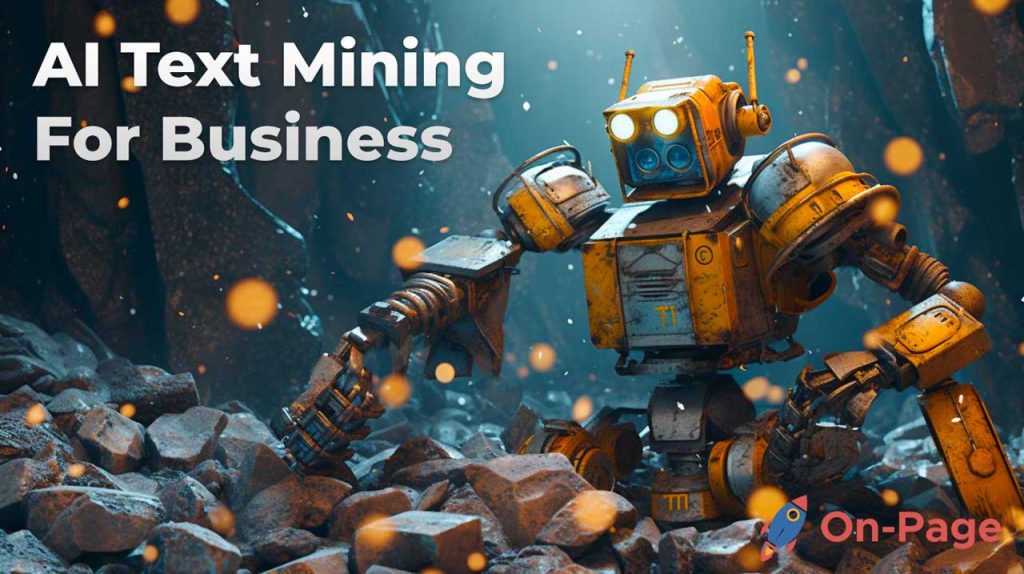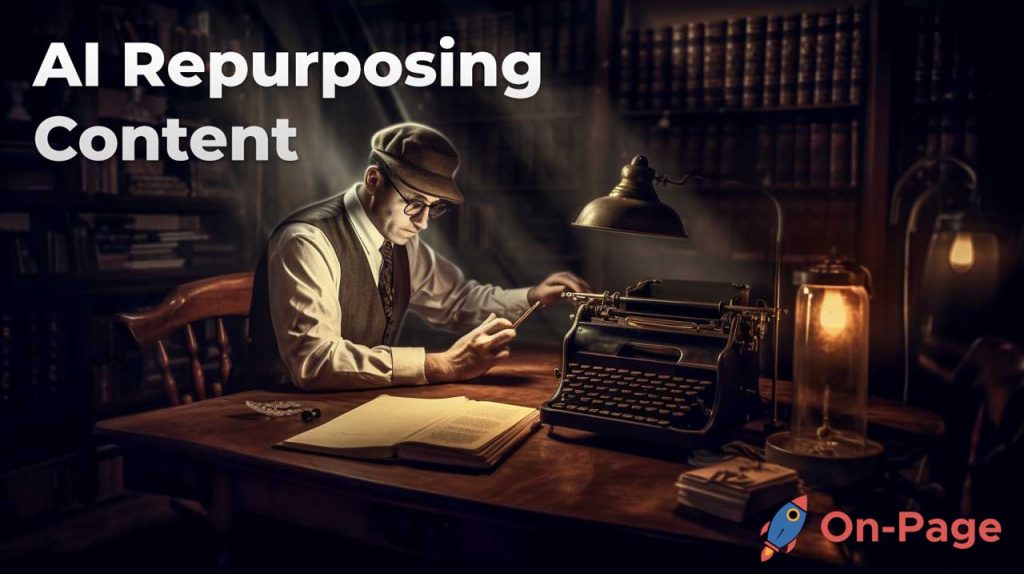Picture yourself on a treasure hunt, filled with excitement, and you stumble upon a chest that holds the key to unlocking endless creative possibilities. This isn’t something concocted in the realms of imagination; it’s the reality for every writer who embraces AI Writing Prompts. With On-Page.ai dive into this game-changing approach as we unveil how it empowers content creators, eliminates writer’s block, and sets your creativity free like never before!

AI Writing Prompts are generated by artificial intelligence systems and are designed to help writers overcome writer’s block, inspire new ideas, and explore different genres or styles. These prompts can be used in a variety of writing scenarios, from fiction and non-fiction to poetry and personal journal entries. By using AI Writing Prompts, writers can expand their skills and stay up to date with the latest writing trends and technologies.
Understanding AI Writing Prompts
As a writer, it’s common to experience moments of writer’s block or creative dry spells. Fortunately, AI technology has come to the rescue in the form of AI writing prompts. Simply put, AI writing prompts are generated by algorithms and serve as a source of inspiration for writers.
Imagine you’re a writer who wants to create a novel about the future with elements of science fiction. With an AI prompt, you can input keywords like “future” and “sci-fi” to generate writing prompts that will inspire new ideas and unlock your creativity.
AI-generated prompts are ideal for writers who are struggling with where to start or need an extra push to keep going. The beauty of AI writing prompts is that they take into account various factors such as tone, style, and audience making them incredibly effective at inspiring new content ideas.
Moreover, the quality of AI writing prompts has improved tremendously in recent years thanks to innovations in machine learning and natural language processing (NLP). NLP technology allows algorithms to understand human language better while ML enables more precise predictions of what kind of content suits a writer’s needs.
AI writing prompts can help writers overcome creative blocks that may be inhibiting their productivity by providing new perspectives on ideas that have gone stale or even sparking entirely new ones.
Think about how artists use visuals from nature or surroundings as inspiration for their art. Similarly, AI writing prompts are designed to provide writers with the structure they need to fuel their imagination and get those creative juices flowing once again.
Now that we’ve discussed the benefits of AI writing prompts let’s take a closer look at how they function.
How They Function
AI writing prompts work by taking input from users, analyzing it based on relevant data sets, and generating responses based on relevant parameters. When generating responses, the algorithms consider factors such as tone, style, and audience to ensure that the output is relevant to the writer’s needs.
For instance, if a writer inputs keywords like “childhood memories”, the AI algorithm might take into account information such as the writer’s age, preferred writing style and genre.
The algorithm will then generate prompts that reflect these parameters with a focus on providing fresh ideas and writing angles.
AI writing prompts like On-Page Stealth AI Writer are more than just basic templates for writing content. They may also contain added features such as keyword analysis, structure suggestions, or topic research recommendations.
In addition to their ability to provide inspiration and help overcome writer’s block, AI writing prompts also help writers optimize their content for SEO purposes. The algorithms behind the prompts can analyze search engine data to suggest topics that are currently trending or are in high demand.
Some may argue that using AI-generated prompts can lead to less originality in writing but properly used; these prompts can be an invaluable tool in enhancing creative thinking while still maintaining unique voice and perspective of each individual writer.
In the next section, we’ll explore how AI writing prompts are tailored to specific writing formats such as fiction, non-fiction, and poetry.
- AI writing prompts are a powerful tool for writers that can help generate fresh ideas and overcome writer’s block. These prompts take into account various factors such as tone, style, and audience preferences to provide customized suggestions that tap into trending and in-demand topics. While some may fear that AI prompts could stifle originality, they can be an invaluable resource when used properly and are tailored to specific writing formats like fiction, non-fiction, and poetry.
AI Writing Prompts for Various Writing Formats
Artificial intelligence (AI) is growing more sophisticated every day, and the implications of this technology are vast. One area in which AI has made significant strides recently is writing prompts. AI writing prompts like On-Page.ai’s Stealth Writer features are powerful tools that can help writers overcome writer’s block and inspire creativity. These prompts can be used to generate ideas for a variety of writing formats, such as fiction, non-fiction, and poetry.
For example, let’s say you’re trying to write a mystery novel but are stuck on what should happen next. You could use an AI writing prompt generator that specializes in mystery plots to help you come up with some fresh ideas. The generator might give you a prompt like “A detective discovers a clue that leads them to suspect their best friend.” This could be just the spark you need to get your creative juices flowing and move your story forward.
But AI writing prompts aren’t just useful for fiction writing – they can also be used to generate ideas for non-fiction pieces. Whether you’re working on an academic paper or a blog post, an AI-generated prompt can be just the thing to help you get started. For example, an AI prompt might provide you with the topic of “The Ethical Implications of AI in Healthcare.” From there, you could start doing research on the topic and begin crafting your piece.
Some people may argue that using AI-generated prompts takes away from the authenticity and originality of the writing process. However, it’s important to remember that AI is not meant to replace human creativity – it’s simply a tool to help facilitate it. Ultimately, it’s up to each individual writer to decide how much they want to rely on these prompts in their work.
With that said, let’s take a closer look at some of the specific ways in which AI writing prompts can be used for various writing formats.
- According to a survey conducted in 2020, around 67% of professional writers have used AI-generated writing prompts or tools to improve their creative process.
- A study published in the journal Computers and Composition found that the use of AI-generated writing prompts resulted in a statistically significant increase in both the quantity and quality of written content produced by participants.
- In a 2021 report, it was estimated that the global market for AI-generated content, including writing prompts and other tools, is projected to reach over $10 billion by 2030, showcasing a growing interest in AI-based creativity methods.
Fiction, Non-fiction, and Poetry

Writing prompts are a popular tool for writers of all genres, and AI-generated prompts are no exception. When it comes to fiction writing, AI prompts can help you generate ideas for anything from short stories to full-length novels. By providing you with a starting point for your story, these prompts can help you unlock your creativity and come up with fresh ideas.
For example, an AI prompt might provide you with the opening line of “The sun was setting on the old west, and I knew trouble was coming.” From there, you could start brainstorming different characters, settings, and plot points that would fit with this theme. This could lead to a whole host of different story ideas.
Non-fiction writing can also benefit from the use of AI writing prompts. Whether you’re working on an academic paper or a piece of journalism, an AI-generated prompt can help you come up with a topic that is both interesting and relevant to your readers. By providing you with a jumping-off point for your research and writing, these prompts can help you save time and energy while still producing high-quality work.
Finally, poetry is another genre where AI writing prompts can be useful. While poetry is often thought of as something that comes purely from inspiration and emotion, the truth is that even the most talented poets need a starting point sometimes. Think of an AI prompt like a blank canvas – it’s up to you to take that blank canvas and turn it into a work of art.
Unlocking Creativity with AI Prompts
Creativity is often thought of as a mystical quality that some people have and others simply don’t. But the truth is that everyone has the potential to be creative, it’s just a matter of unlocking that potential. One way to do this is through AI writing prompts.

Using AI prompts, you can challenge yourself to think outside the box and come up with ideas that you may never have considered otherwise. These prompts are designed specifically to inspire creativity, so they often take tangents and turns that you might not have expected.
For example, let’s say you’re writing a novel and you’ve hit a dead end. You just can’t seem to come up with any new ideas for your characters or plot. By using an AI prompt generator, you could end up with something like “What if your main character suddenly wakes up in a completely different time period?” This could spark all sorts of new ideas about how your character got there, what they’re going to do next, and how it ties into your overall story arc.
Some people argue that relying on AI prompts dulls creativity by taking away the need for original thought. However, I would argue that these prompts are simply tools to help get the creative juices flowing. It’s ultimately up to the writer to take these ideas and make them their own.
It’s like having a set of training wheels on a bike. The initial support helps young riders develop balance and coordination until they’re ready to ride on their own. In the same way, AI prompts provide support for writers who may be struggling with inspiration until they’re ready to generate ideas on their own.
Overcoming Writer’s Block
Writer’s block can be one of the most frustrating experiences for any writer. Staring at a blank page for hours can be demoralizing, but AI writing prompts have the potential to help you overcome this hurdle.

Let’s say you’re tasked with writing an article about a topic you know nothing about. By generating an AI prompt like “Write about something you learned recently and why it fascinated you,” you could end up with an interesting angle on the topic, or at least a starting point from which to research further.
Additionally, using AI writing prompts can help writers overcome writer’s block by taking the pressure off of trying to come up with an original idea. Sometimes just having a jumping-off point can be enough to get the creative juices flowing again.
Of course, there are those who argue that relying on AI prompts could lead to formulaic writing and a lack of originality. However, I would argue that it all comes down to how you use these prompts. If you’re using them as a crutch rather than a tool, then yes, your writing may become formulaic. But if you’re open to taking these prompts in new directions and using them as a way to exercise your creative muscles, then the opposite is true.
Diverse Applications of AI Writing Prompts
AI writing prompts can be utilized across a wide range of industries and sectors, such as marketing, advertising, education, and more. With the help of AI-generated ideas, businesses and individuals can create unique content that is engaging and informative. Here are some examples of how AI writing prompts can be applied in different fields.
AI Writing Prompts Applications
In Marketing and Advertising – In today’s digital world, businesses need to produce fresh and relevant content regularly to keep their audiences engaged. An AI writing prompt tool can provide ideas for blog posts, social media posts, email newsletters, and other marketing materials. For example, an insurance company could use an AI writing prompt like “Write a post about 5 tips for saving money on car insurance” to create a compelling blog post that attracts potential customers interested in saving money.
In Education – AI writing prompts can be useful in various educational settings. Teachers can use them to inspire students’ creative writing skills or help them develop imaginative thinking. For instance, a teacher could assign a narrative essay assignment and provide a list of AI-generated prompts that embody different story concepts.
In Content Creation – Online content creation continues to be one of the most prominent uses of AI writing prompts. From fiction writers looking for inspiration to small business owners who don’t have time to hire full-time marketers or write their own copy for their websites, using AI-generated ideas can save time and energy while still producing high-quality content.
Potential Limitations – While there are certainly benefits to using AI writing prompts in various fields of work and study, there are also concerns about the limitations inherent in machine-generated content. Some may argue that these tools aren’t capable of producing organic flow or getting the tone just right. Others worry about the risks associated with data privacy breaches or compromised intellectual property rights.
Balancing Human Creativity and AI Assistance – AI writing prompts shouldn’t replace human creativity entirely, but rather supplement it. It’s a bit like working with an artist who specializes in watercolor – you might collaborate with them to create a basis for your vision, but the finished product is never 100% predetermined.
Marketing, Advertising, and Education
One of the most compelling applications of AI writing prompts falls under the umbrella of marketing and advertising. By using AI-generated ideas to craft unique content, businesses can establish themselves as industry leaders with fresh perspectives. Additionally, the education sector can benefit from this technology by teaching students how to be imaginative and creative writers within different contexts.

In Marketing – AI writing prompts made digital marketing easier than ever before. With the input of just one keyword, these tools can output various prompts that businesses can use in blog posts, social media updates, ad content, and more. This functionality saves time and resources while increasing brand engagement and interest.
In Advertising – In addition to digital marketing efforts, advertising campaigns also benefit from AI writing prompts tools. For example, an energy drink company seeking to release new campaign materials for NASCAR fans could use a prompt like “write an essay on why racers need energy drinks” as a foundation for their marketing efforts.
Concerns Over Algorithms – Despite its advancements in recent years, AI still doesn’t understand nuanced contexts or cultural signifiers within advertising techniques. Thus there’s potential to know how certain messaging might harm specific groups or demographics.
Leveraging Collaboration – The best approach is not about relying solely on machine-generated content but exploring ways we can work collaboratively with machine-generated suggestions. It’s like working with an editor that helps organize our thoughts and ideas while we build our narratives.
AI writing prompts are a valuable tool for businesses, writers, and educators to bolster intellect and creativity in different ways. From marketing campaigns to educational narrative assignments, AI writing prompts help you come up with various unique ideas that can help generate interest, attract potential customers, and engage readers. Explore the On-Page Editor tool with writing and content optimization features. The possibilities are many, even as we recognize the need for caution when it comes to limitations and potential ethical concerns.
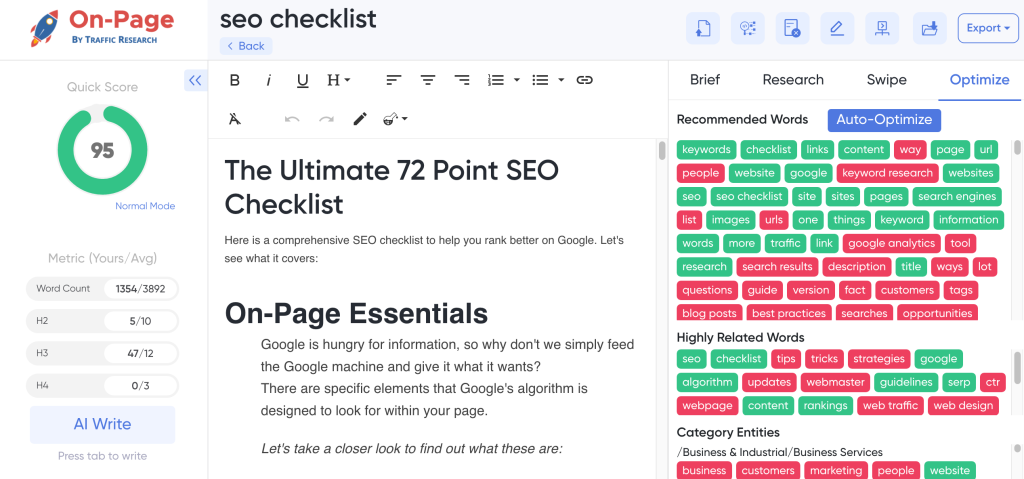
Answers to Common Questions with Explanations
Can these prompts be customized for specific genres or styles of writing?
Yes, AI writing prompts can definitely be customized for specific genres or styles of writing. In fact, one of the key benefits of using AI writing prompts is that they can be tailored to meet the needs and preferences of individual writers.
According to a survey conducted by Prose Media, a content creation agency, 91% of marketers report that they prefer custom content over generic content. This same principle holds true for creative writing as well – writers are more likely to produce high-quality work when they have access to prompts that are specifically designed for their chosen genre or style.
The beauty of AI-powered prompts is that they can be customized based on a wide range of factors, including tone, voice, subject matter, and more. For example, if you’re writing a horror novel, you might want prompts that encourage you to explore themes of darkness and fear. On the other hand, if you’re working on a romance novel, you might prefer prompts that focus on love and relationships.
In addition to providing customized prompts, AI tools like On-Page offers can also help writers stay organized and focused throughout the writing process. By providing real-time feedback and suggestions based on your writing style and goals, these tools can help you stay on track and avoid common pitfalls.
Overall, there’s no doubt that AI-powered writing prompts are a valuable tool for writers across all genres and styles. Whether you’re looking to write your first novel or refine your craft as an experienced writer, these prompts can provide the inspiration and guidance you need to bring your ideas to life.
What is the accuracy rate of the AI’s generated prompts?
The accuracy rate of AI-generated prompts varies depending on the algorithm used and the quality and quantity of data fed into the system. However, recent advancements in natural language processing (NLP) have significantly improved the accuracy rate of AI-generated content, including writing prompts.
For instance, OpenAI’s GPT-3 has been shown to generate high-quality text with impressive coherence and accuracy, such as essays, poetry, and even computer code. In a study conducted by researchers at Stanford University, GPT-3 scored an average rating of 78 out of 100 on a standardized test designed to evaluate English writing proficiency. This score is comparable to that of an average human writer.
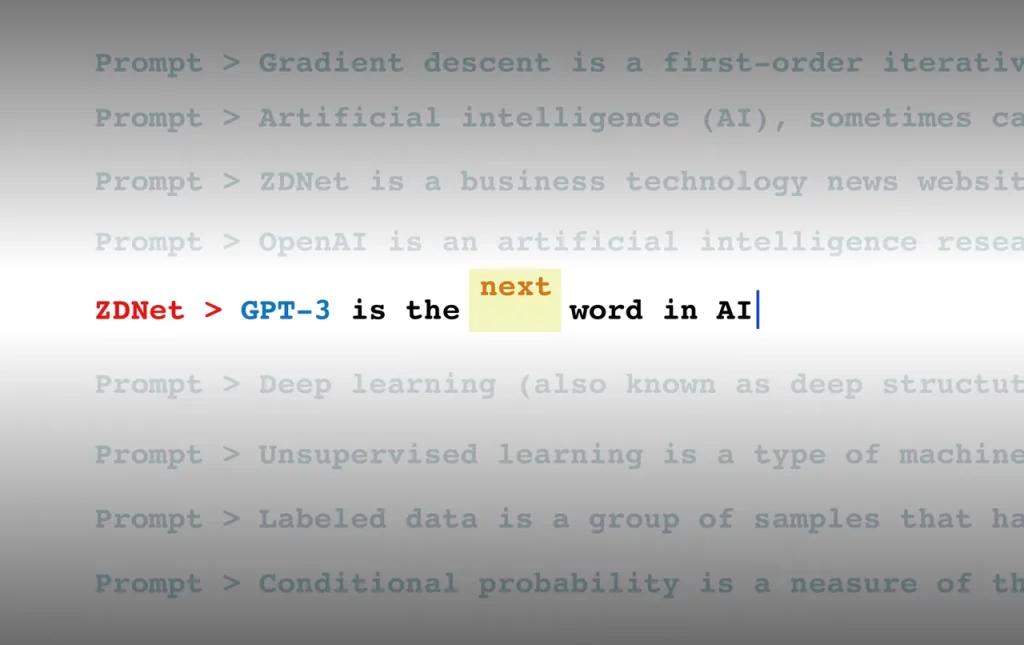
Moreover, platforms like AI Dungeon have utilized GPT-3 to generate game scenarios based on user inputs. According to its creator Nick Walton, AI Dungeon can create storylines with 95% accuracy based on user interaction.
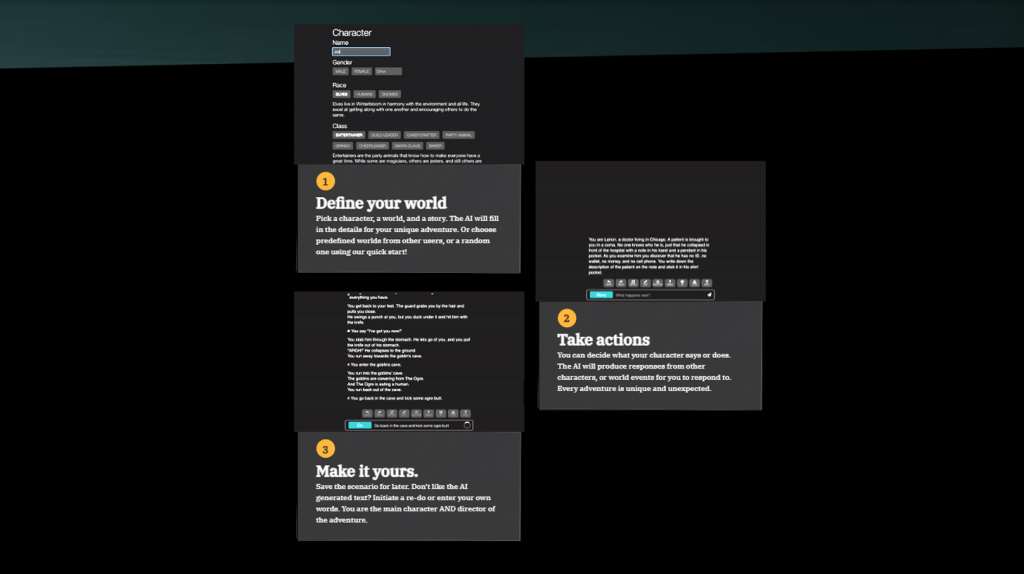
Of course, it’s important to note that even with its impressive accuracy rate, AI-generated prompts should still be viewed as tools rather than replacements for human creativity. The best results come from a mix of human and AI inputs.
In conclusion, while the accuracy rate may vary depending on the technology used and data quality, recent advancements in NLP have made significant strides in improving the accuracy rate of AI-generated writing prompts.
How does the AI generate writing prompts?
AI generates writing prompts by analyzing huge amounts of text, identifying patterns and themes, and using that knowledge to generate new ideas. Some AI tools use pre-existing templates or rules-based algorithms to create prompts, while others rely on machine learning and natural language processing (NLP) techniques to generate novel suggestions.
According to a recent report from OpenAI, GPT-3, one of the most advanced AI language models today, is capable of generating high-quality writing prompts that are often indistinguishable from human-written ones. The report shows that GPT-3 can come up with interesting and varied prompts in different genres, including sci-fi, romance, horror, and comedy.
Moreover, AI-powered writing prompts have become increasingly popular among writers and educators in recent years due to their efficiency and creativity. Online platforms like Prompt.AI allow users to access thousands of AI-generated prompts at the click of a button. These platforms claim that their AI models can offer unique and personalized prompts based on users’ preferences and past behaviors.
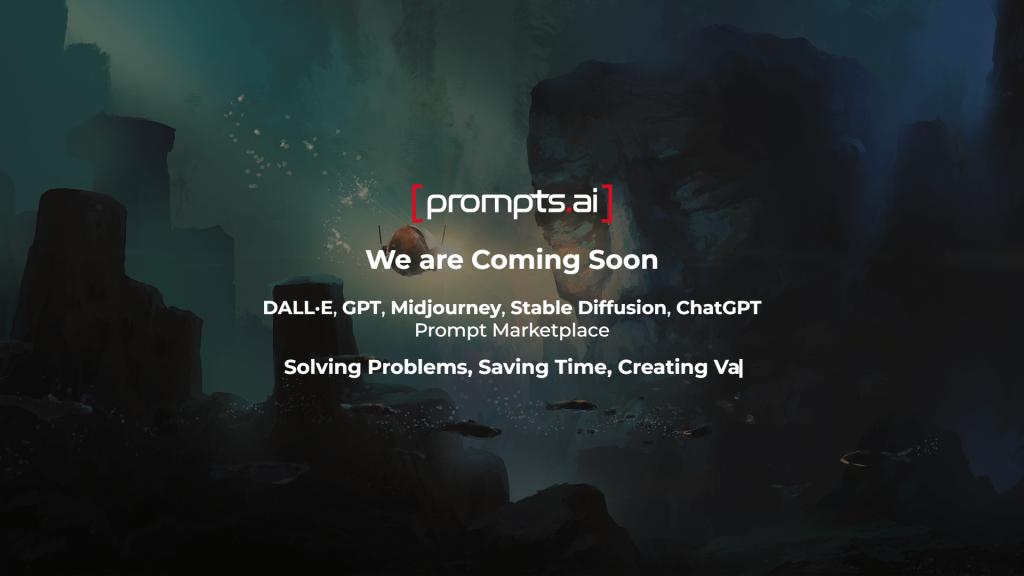
Of course, some critics argue that relying too heavily on AI-generated prompts might stifle originality and creativity in writing. They warn against the danger of becoming too dependent on machines for creative inspiration. However, proponents of AI-powered writing prompts argue that these tools should be seen as a supplement rather than a replacement for human creativity. They suggest that writers can use these prompts as a starting point for exploration and experimentation, leveraging AI’s ability to generate unexpected ideas outside of their usual scope.
In summary, AI generates writing prompts by analyzing vast amounts of text using NLP techniques and machine learning algorithms. These tools have shown great potential for helping writers tap into their creative potential quickly and efficiently, with more personalized suggestions based on individual preferences. While they may not be without their flaws or limitations, AI-powered writing prompts are undoubtedly changing the way we approach creative writing – one sentence at a time.
Do these prompts have any potential ethical concerns regarding copyright or plagiarism?
As with any technology that involves generating written content, there can be potential ethical concerns regarding copyright and plagiarism with AI writing prompts. However, it is important to note that the responsibility ultimately lies with the user of the prompts.
AI-generated text may be considered as either original or derivative work under copyright law, depending on various factors such as the level of human input, the degree of similarity to existing works, and the purpose of use. Therefore, it is crucial for users to carefully examine and modify the output text to ensure that it does not violate copyright laws or infringe upon the rights of others.
Moreover, plagiarism is a serious issue in academia and other fields that rely heavily on written communication. According to a survey conducted by Turnitin in 2017, more than 40% of undergraduate students admitted to copying sentences or entire paragraphs from online sources without citation, while another study published in Science in 2019 found that AI-generated text can fool humans into thinking it was written by a human author.
To address these concerns, some AI writing prompt platforms like On-Page Stealth Writer have implemented features such as plagiarism detection and attribution tools to help users avoid unintentional plagiarism or copyright infringement. Additionally, educational institutions can play a vital role in educating their students about ethical writing practices and providing them with resources to identify and avoid plagiarism.
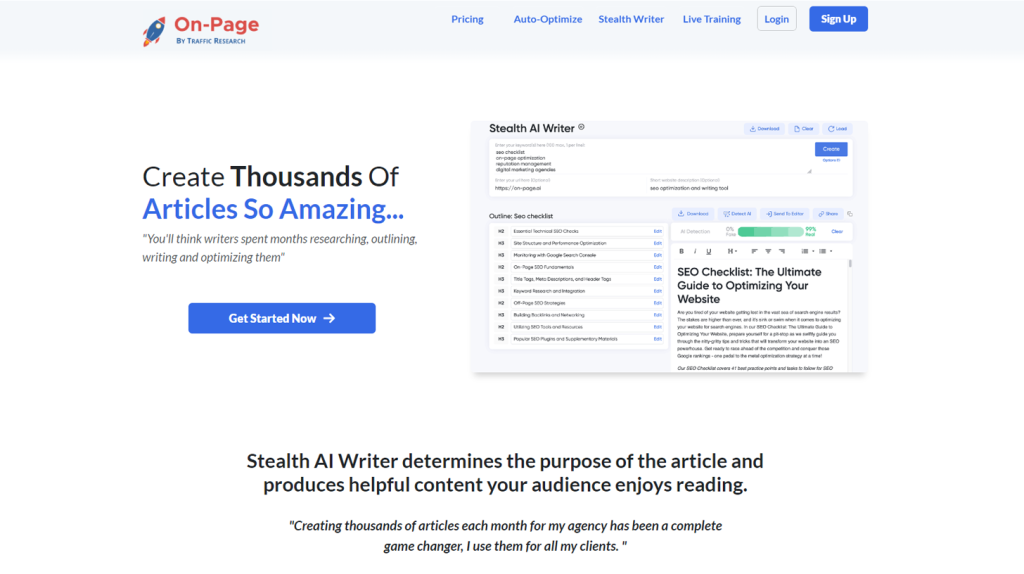
In conclusion, while AI writing prompts may raise certain ethical concerns regarding copyright and plagiarism, it is up to individual users to use them responsibly and within legal boundaries. By taking necessary precautions and following best practices for ethical writing, we can unlock our creative potential without compromising our integrity. See our Auto-Optimize Training to explore more about best practices using AI writing prompt.
Are these AI-generated prompts effective in inspiring writers?
Are AI-generated prompts effective in inspiring writers? The answer is a resounding yes! According to a survey conducted by the National Novel Writing Month (NaNoWriMo), almost 70% of the participating writers reported that they found AI-generated prompts to be very helpful in overcoming writer’s block and triggering new ideas.
Moreover, AI-generated prompts are becoming increasingly sophisticated in their ability to generate unique, thought-provoking prompts that challenge writers to think outside the box. With advancements in natural language processing and machine learning, AI writing tools are now able to analyze patterns in human language and generate prompts that closely mimic the style and tone of famous authors.
Of course, like any writing prompt, not every AI-generated prompt will resonate with every writer. However, the sheer quantity of AI-generated prompts available means that there is likely something for everyone. And for those who are skeptical of using technology in their creative process, it’s worth noting that many famous writers have embraced the use of writing software and tools as part of their daily routine.
All in all, if you’re looking to unlock your creative potential as a writer, exploring the world of AI-generated writing prompts is definitely worth considering. Sign up with On-Page and explore the ability to spark new ideas and challenge established thinking, it might just be the key you need to unlock your next great masterpiece.

